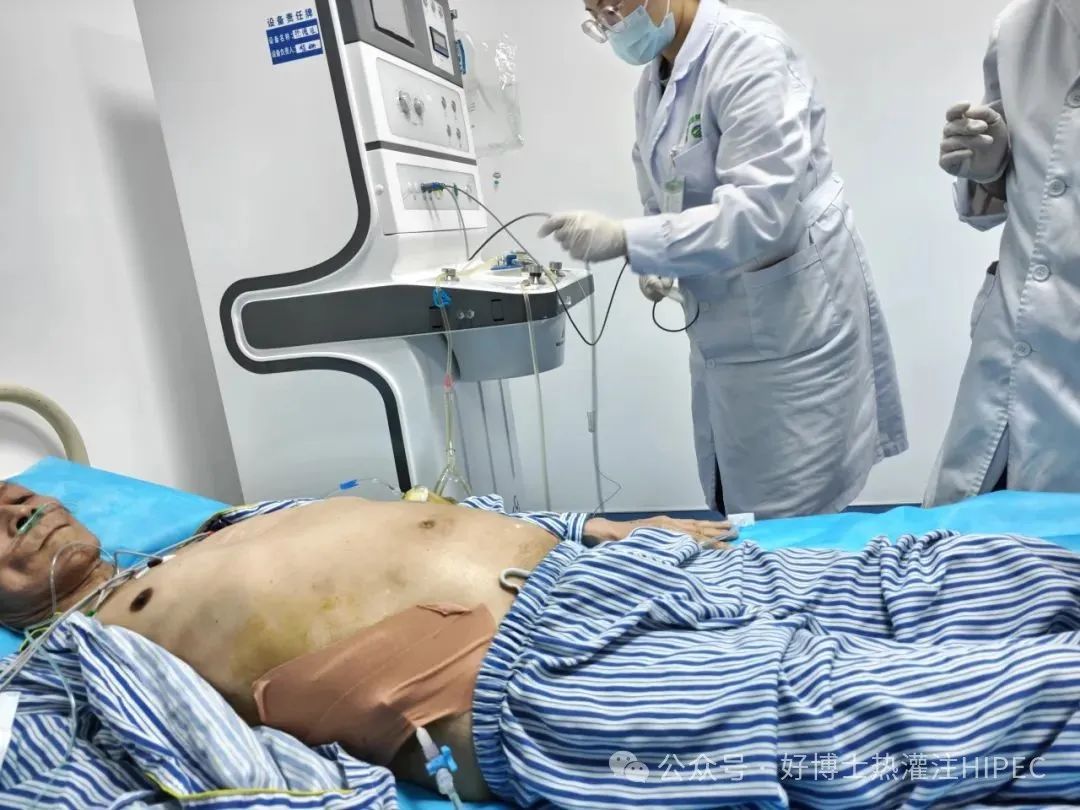Good Doctor. Hot Infusion | Reprinted: New Breakthrough in Cancer Treatment! Our Interventional Department Successfully Conducted the First Case of Intraperitoneal Hyperthermic Perfusion Treatment
2025-06-24
Prevention and treatment of tumor implantation and metastasis; control of cancerous effusion in body cavities.
June 6, 2025, our hospital's interventional department successfully performed the first case of intraperitoneal hyperthermia perfusion treatment to relieve the pain of gastric cancer patients with ascites. The success of this treatment has added a highly effective method to our hospital's comprehensive tumor treatment, and will rely on “multi-cavity, minimally invasive, metastasis control, effusion treatment” advantages to develop scientific treatment plans for more patients and promote the improvement of tumor treatment. This treatment uses a minimally invasive needle puncture circulation technique, external puncture and catheter placement, under computer monitoring and adjustment, the 42.5℃ perfusion solution is circulated at a constant temperature for 60 minutes, which can be combined with heat-sensitive chemotherapeutic drugs to synergistically kill free cancer cells and small implantation and metastasis foci. Extend life, quality of life!
Case |Gastric malignant tumor patient -- Ascites
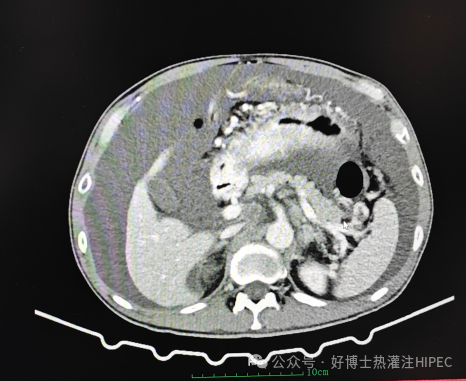
Patient: Xi Moumou, Male, 67 years old
Chief Complaint: Gastric malignant tumor found, abdominal distension, heartburn, aggravated with fatigue for 2 weeks
History of Present Illness: The patient developed poor appetite and sudden weight loss of 5kg without obvious inducement. Persistent abdominal distension and heartburn. CT showed extensive lymph node metastasis in the retroperitoneum, peritoneal implantation metastasis with the formation of a large amount of ascites, and was admitted to the hospital with a diagnosis of "gastric malignant tumor" in the outpatient clinic.
The expert team performed body cavity hyperthermia perfusion treatment for the patient
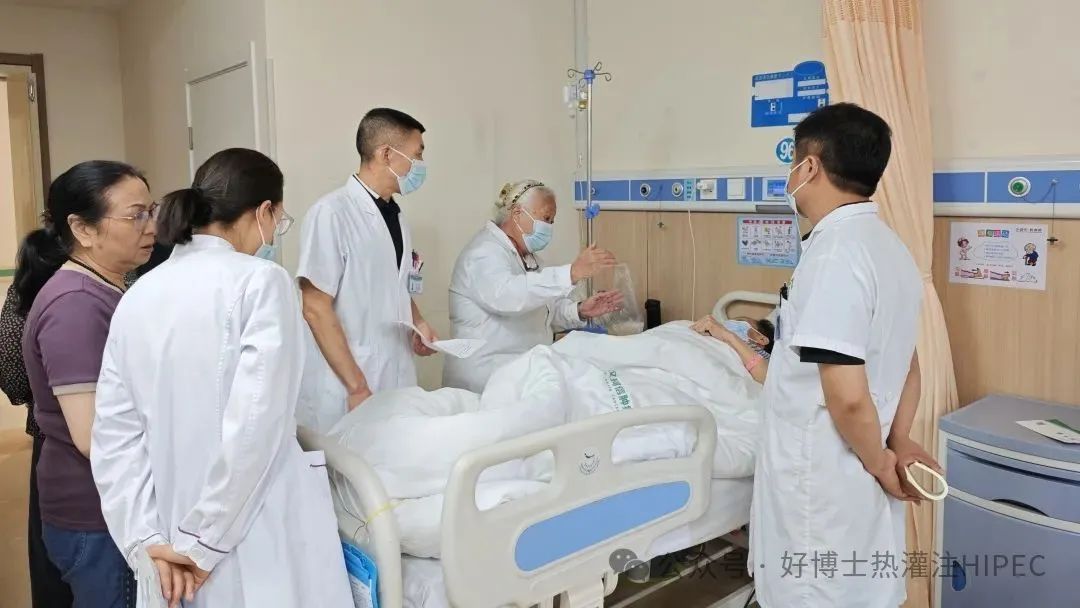
Our interventional department's expert professor team held a consultation for the patient and developed a "body cavity hyperthermia perfusion treatment" plan.
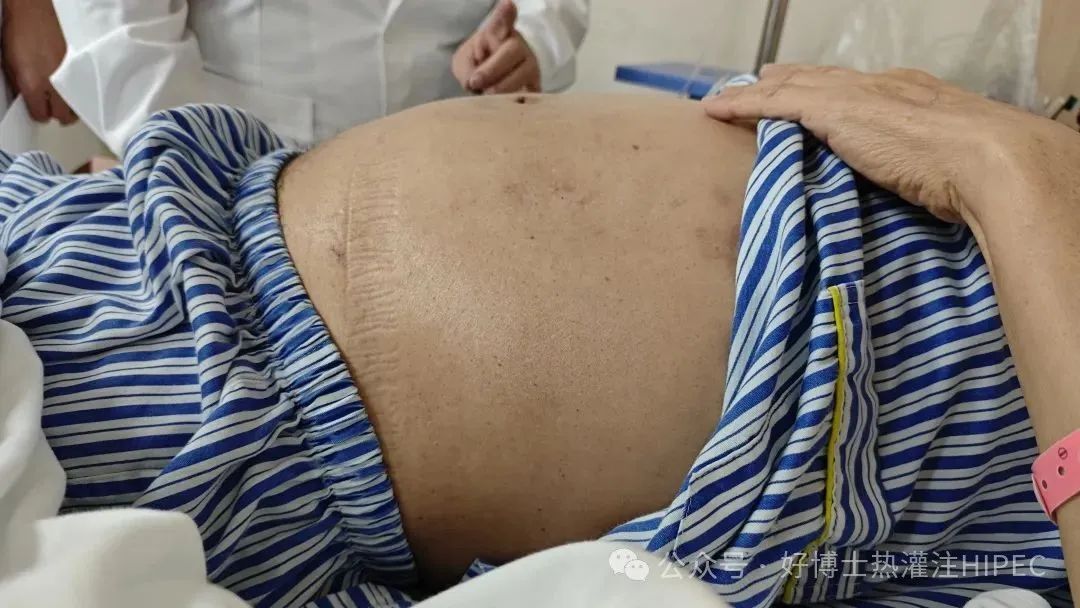
Before treatment: The patient's swollen abdomen before treatment.
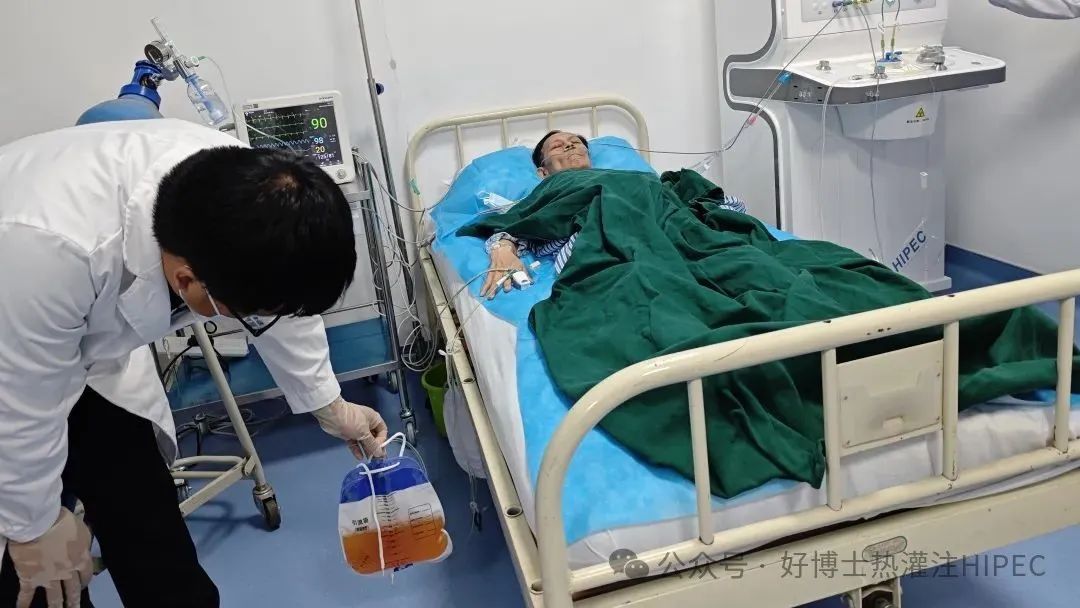
External puncture and catheter placement The perfusion solution is automatically heated in the body cavity hyperthermia perfusion machine and then injected into the body cavity. Under the dynamic detection and feedback adjustment of the computer throughout the process, maintain the perfusion solution at a treatment temperature of 42.5℃, and continuously circulate at a constant temperature for 60 minutes A large amount of tumor tissue was found in the body cavity effusion flushed out of the patient's abdomen, and the color was dark brown.
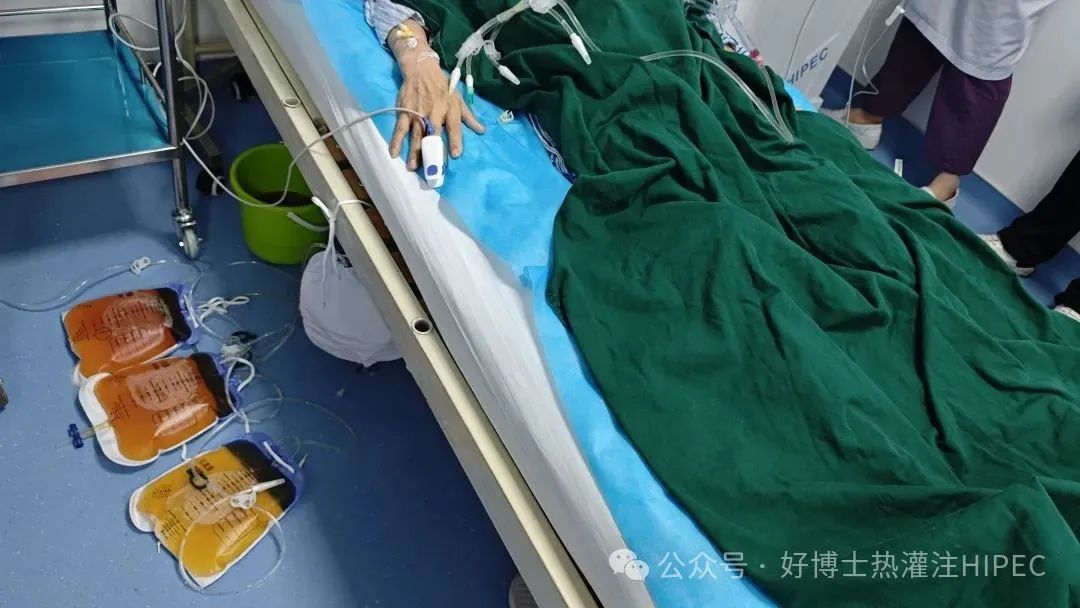
Through continuous circulation and flushing, the color of the patient's body cavity effusion became lighter and clearer.
Physical flushing principle: The shear force of liquid flow can directly lead to the death of tumor cells, and liquid flushing can remove free cancer cells and small metastatic foci.
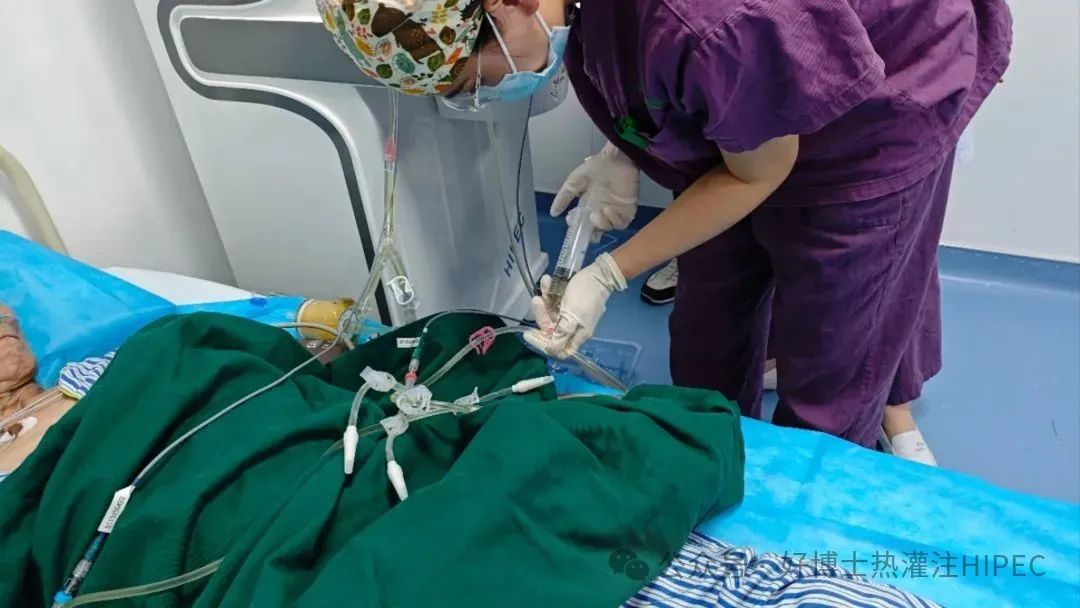
Using the principle of chemotherapy synergy, some chemotherapeutic drugs were added for the first time.
Chemotherapy synergy principle: Chemotherapeutic drugs with heat-sensitizing effects. The sensitivity is greatly increased after heating. The efficacy increases exponentially, improving the effect of chemotherapy. The external tubing volume is less than 500ml, which is convenient for precise clinical medication.
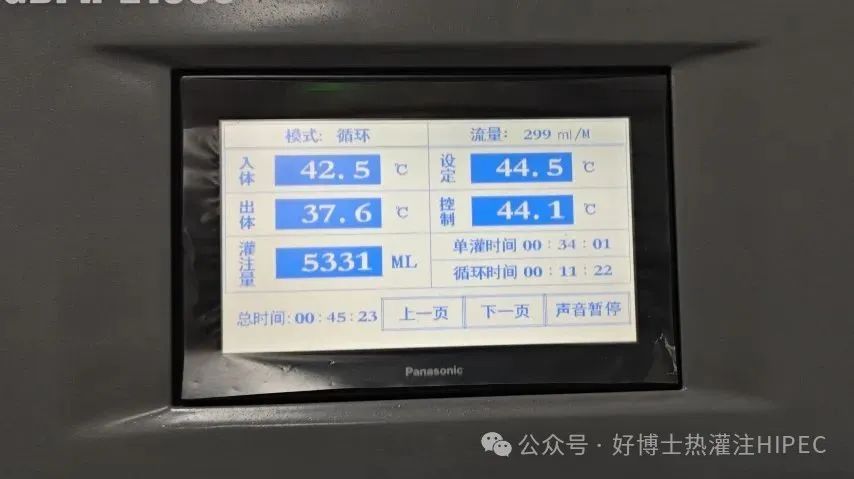
Tumor thermal killing principle: Tumor tissue and normal human tissue have different sensitivities to heat. The combined effect of 42.5℃ + 60 minutes can exponentially increase the mortality rate of cancer cells.
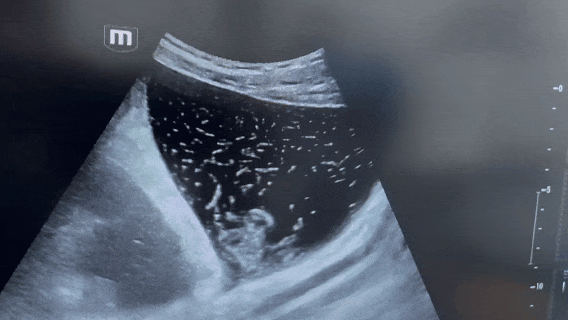
(The effective circulation of intraperitoneal hyperthermia perfusion can be clearly seen under B-ultrasound)
(After the treatment, comparison of the patient's abdomen before and after treatment)
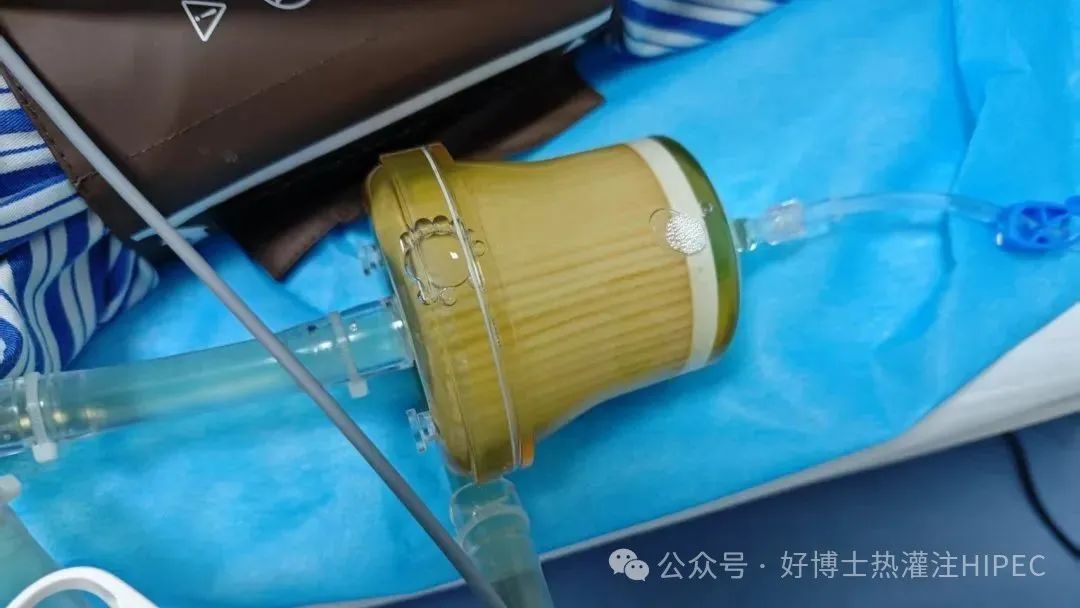
(Body cavity hyperthermia perfusion machine, tumor tissue filtered in the filter)
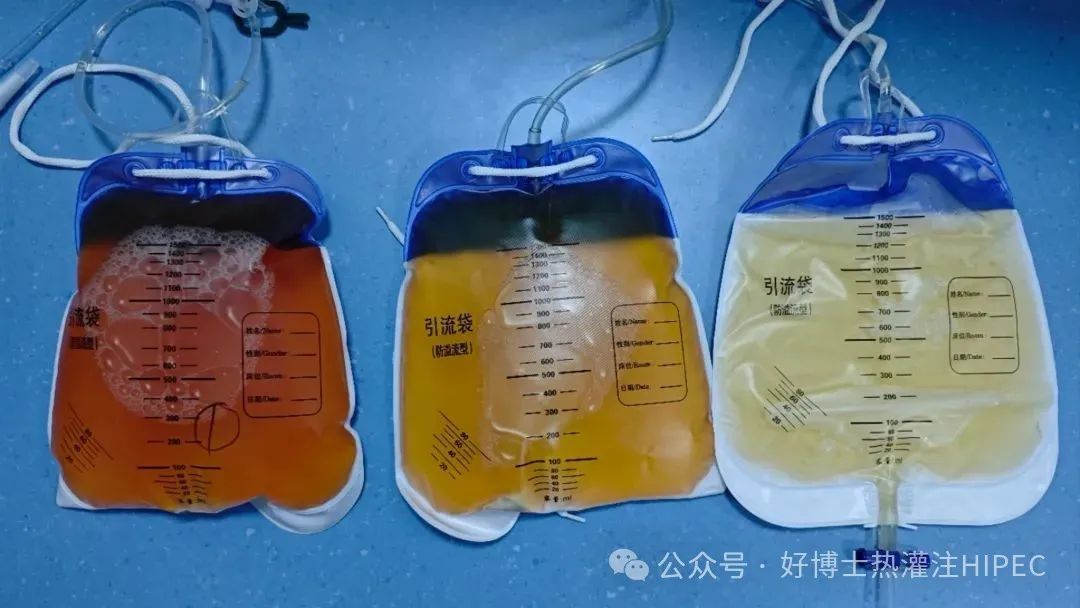
(60 minutes of body cavity hyperthermia perfusion treatment completed, comparison of effusion before and after treatment)
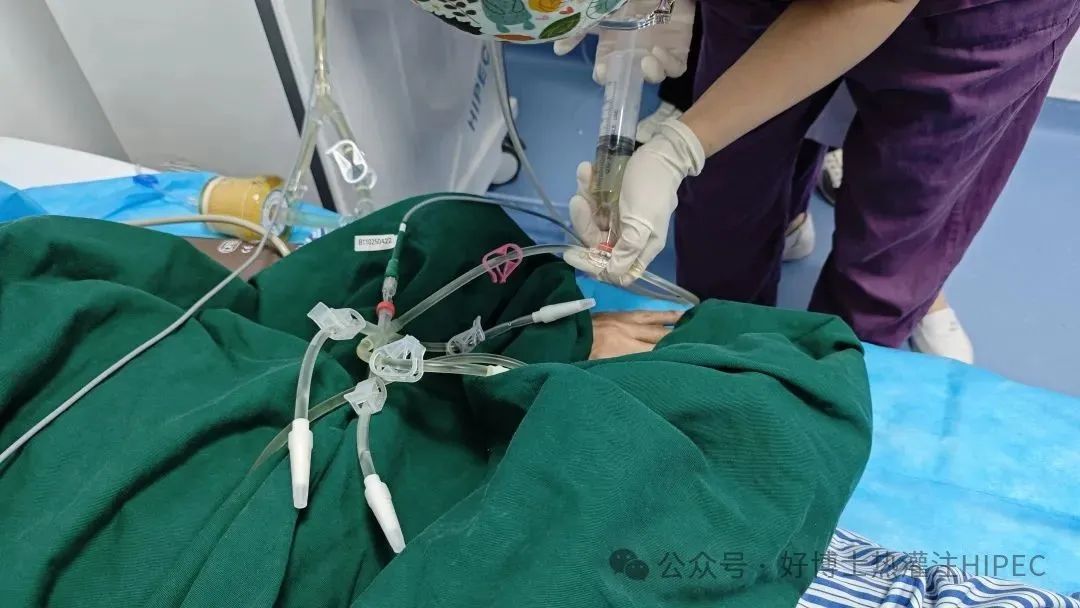
(Some chemotherapeutic drugs were added again)
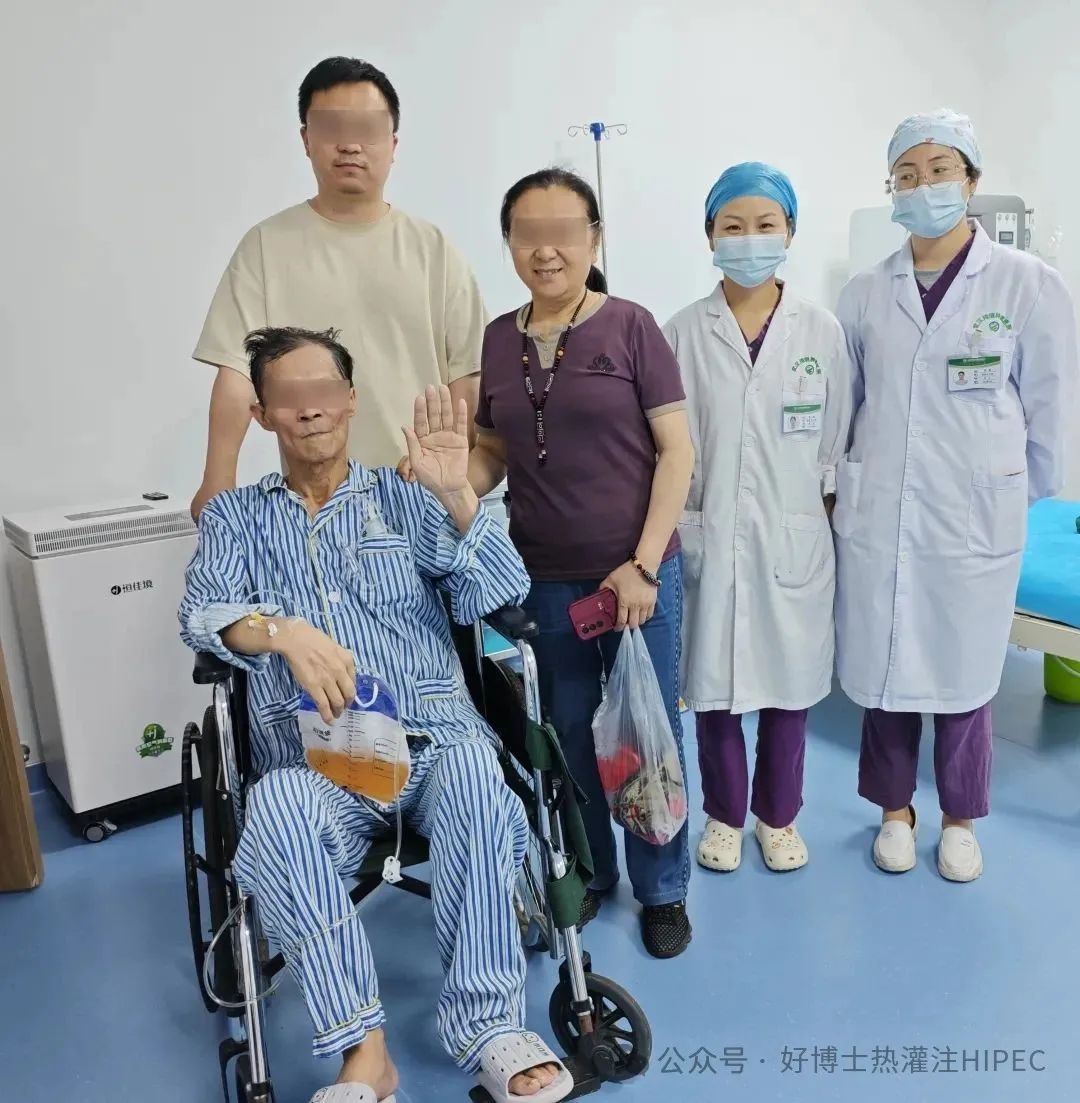
(After the treatment, the patient's condition was good)
Body cavity hyperthermia perfusion treatment plan
Green, safe, new method of adjuvant tumor treatment
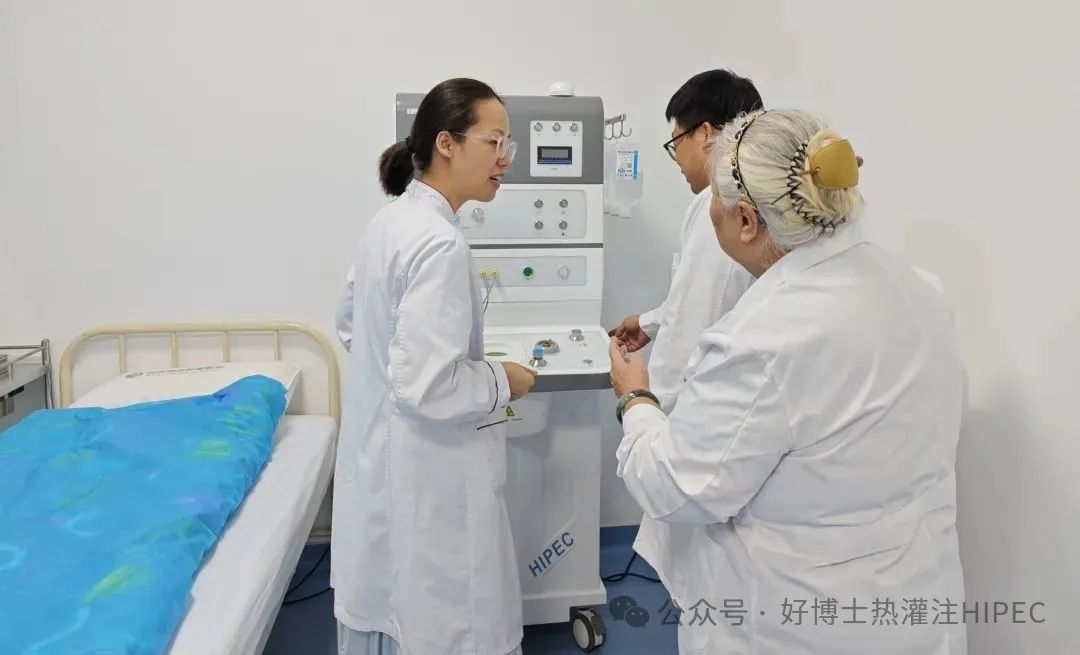
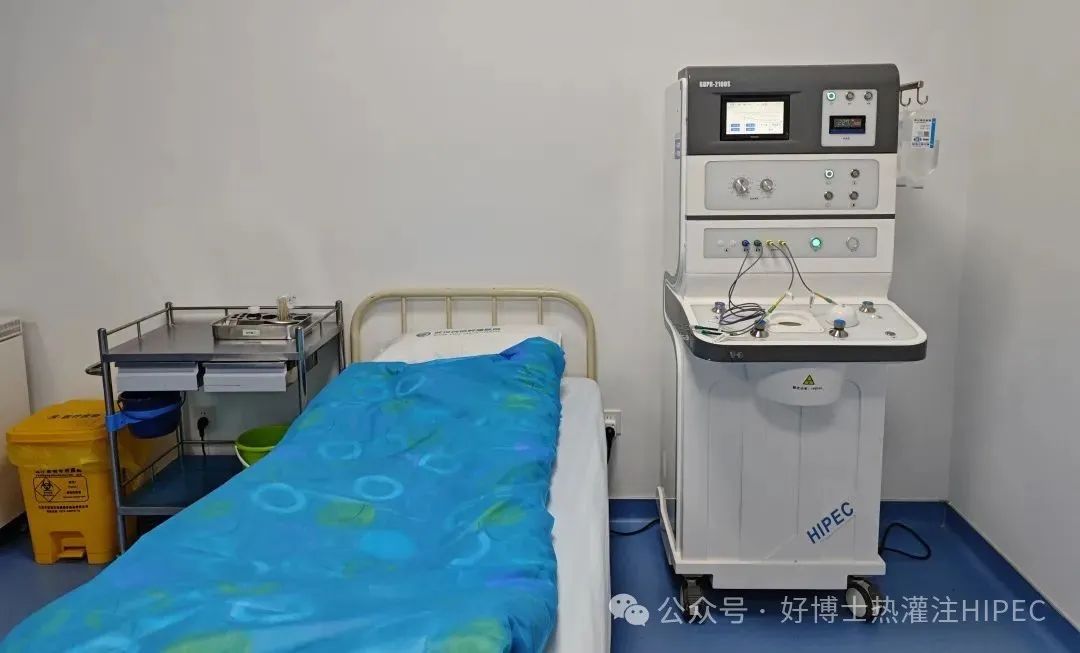
Clinical Indications
- Treatment of gastric cancer, lung cancer, colorectal cancer, intraoperative and postoperative prevention and treatment of implantation and metastasis.
- Perfusion treatment of cancer cells, metastatic nodules, and residual lesions that cannot be removed by surgery.
- Perfusion treatment of malignant body cavity effusion (pleural cavity, abdominal cavity).
- Perfusion treatment of ovarian cancer metastasis.
- Treatment of malignant thoracic and abdominal mesothelioma.
Clinical Practical Value
Internal Medicine Characteristics
- Minimally invasive, can be used in conjunction with minimally invasive pre-placed puncture needles and drainage tubes to achieve effective circulation.
- Suitable for the treatment of malignant body cavity effusion caused by thoracic and abdominal cancer and postoperative prevention of metastasis.
- Can be used repeatedly multiple times according to the chemotherapy cycle.
- Precise multi-channel temperature monitoring of the thoracic and abdominal cavities.
- External tubing volume is less than 500ml, which is convenient for precise clinical medication.
- Removable filters can be used to ensure the removal of cancer cells.
- Wide range of applications, convenient for multi-departmental implementation.
Surgical Characteristics
- It has multi-channel temperature monitoring function with multiple inputs and outputs.
- Features intraoperative high-flow lavage.
- Features automatic drainage of intraoperative perfusion fluid.
- Suitable for the treatment of advanced or progressive cancers of the thoracic cavity and abdominal cavity.
- External tubing volume is less than 500ml, which is convenient for precise clinical medication.
- Can be used with laparoscopy to perform hyperthermic intraperitoneal chemotherapy (HIPEC).
- Removable filters can be used to ensure the removal of cancer cells.
Contraindications
- Patients with severe thoracic and abdominal adhesions;
- Bowel obstruction, hepatic cirrhosis with ascites;
- ECOG > 2, extremely debilitated physical condition, unable to tolerate hyperthermic intraperitoneal chemotherapy;
- Patients with bleeding tendency;
- Patients with uncontrolled hypertension, heart disease, cerebrovascular accident, coronary heart disease, and arrhythmia;
- Patients with advanced malignant body cavity effusion and failure of one or more major organs such as the heart, lungs, liver, and kidneys;
- Patients with inguinal hernia or diaphragmatic hernia;
- Patients with poor compliance.
Medical Consultation
Hospital Address: No. 36, Baishazhou Avenue, Hongshan District, Wuhan City
Contact Number: 027-88082999
Key words:
Related News



